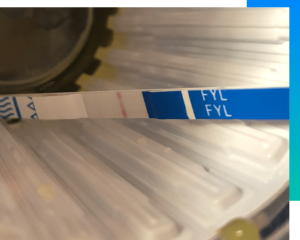With Gov. Dan McKee's (D) signature Wednesday, Rhode Island became the 19th state in the US to legalize marijuana. The measure he signed into law, Senate Bill 2430, had won final floor votes in both chambers of the legislature on Tuesday. It was the product of months of negotiations among legislative leaders and the governor and within the legislature itself.
The new law allows adults to possess and purchase up to an ounce of marijuana and grow up to three plants at home and that part of the law goes into effect immediately. It also includes a provision for the automatic expungement of past civil or criminal marijuana possession convictions by July 2024 (and those who want it sooner can request it). Additionally, it creates a system of taxed and regulated marijuana commerce, with a 10 percent tax on retail sales and another 10 percent in state and local sales taxes. Retail sales could happen as soon as December 1.
And it has significant social equity provisions. It reserves one quarter of all new retail marijuana licenses for applicants that qualify as social equity businesses and it creates a social equity assistance fund providing grants, job training programs, and other social services for communities most negatively impacted by pot prohibition. In an additional twist, the new law also reserves a quarter of new licenses to worker-owned cooperatives.
"This bill successfully incorporates our priorities of making sure cannabis legalization is equitable, controlled, and safe," Governor McKee said in a statement announcing the signing. "In addition, it creates a process for the automatic expungement of past cannabis convictions. My administration's original legalization plan also included such a provision, and I am thrilled that the Assembly recognized the importance of this particular issue. The end result is a win for our state both socially and economically."
"The reality is that prohibition does not stop cannabis use," said bill sponsor Sen. Joshua Miller (D-Dist. 28, Cranston, Providence), chairman of the Senate Health and Human Services Committee. "Since Rhode Islanders can already access cannabis just across the state border or on the illicit market, we experience all the challenges without any of the safeguards or resources that our neighboring states have. With this bill, we are ending prohibition in a way that is safe, keeps revenue in Rhode Island, and is as fair and equitable as we can possibly make it."
"Social equity has been a top concern for us throughout this whole process. Senator Miller and I represent some of the communities that have suffered disproportionate harm from prohibition for decades, resulting in generational poverty and mass incarceration. The starting line isn't the same for people in poor, urban and minority communities, and they deserve support to ensure they get the full benefit of participating in legalization. I am grateful to my colleagues in the General Assembly for recognizing the importance of expungement of criminal records and equity in licensing, because they are absolutely critical to ending prohibition fairly," said bill sponsor Rep. Scott A. Slater (D-Dist. 10, Providence).
The Marijuana Policy Project (MPP), which has worked on the issue in the state for years, pronounced itself pleased with the results in a statement Wednesday, but cautioned that now this progressive law will have to be implemented correctly.
"After years of persistent advocacy by organizations and supporters across the state, lawmakers have enacted a well-crafted cannabis legalization law that will create new opportunities for Rhode Islanders and begin the process of addressing decades of harm caused by prohibition," said MPP state campaigns manager Jared Moffat. "There is more work to be done to ensure that the full promise and potential of this legislation is achieved, but today is a day for us to celebrate and recognize that the hard work of organizing and educating eventually pays off."
A day for Rhode Islanders to celebrate, indeed.
back to top
Transforming the War on Drugs: Warriors, Victims and Vulnerable Regions edited by Annette Idler and Juan Carlos Garzon Vergara (2021, Oxford University Press, 584 pp., $34.95 PB)
If you have been watching the growing fissures and fractures in the global prohibitionist consensus embodied in the United Nation's three-treaty international drug control regime (IDCR) and are expecting the whole thing to come crashing to the ground sometime soon, don't hold your breath. That is the message that comes through loud and clear in
Transforming the War on Drugs, an essential collection that comprehensively analyzes the past and present of global drug policy and points the way to a different, better future.
As the contributors make clear, while the IDCR is suffering well-earned stresses, especially around its failure to succeed on its own terms -- reducing drug use and the drug trade -- and while the "Vienna consensus" may be fraying, the global reform movement that has been building since the failure of the 1998 UN General Assembly Session (UNGASS) on Drugs to meet its goal of eradicating drug use within a decade has yet to jell.
As Monica Serrano explains in "A Forward March Halted: The UNGASS Process and the War on Drugs," while Latin American nations such as Colombia and Mexico called for a reconsideration of the IDCR, paving the way for the 2016 UNGASS, they did not succeed in building alliances with other nations that could push the process forward. That was not only because of deficiencies in those countries' efforts, but also because, despite the ever-increasing calls for change, a majority of countries around the world still subscribe to the law enforcement-heavy tenets of the global drug prohibition regime.
That is despite the now quite clearly understood harms that the IDCR imposes on different countries and groups around the world. Whether it is enabling the rise of violent drug trafficking organizations, destroying the livelihoods of poor drug crop farmers, creating horrendous human rights violations, filling prisons around the world, or creating needless suffering for drug users, the international response to drug use and trafficking is creating real, calculable negative consequences.
As coeditor Annette Idler demonstrates in "Warriors, Victims, and Vulnerable Regions," the heedless harshness of the IDCR is embedded in its very DNA. From the beginning, the US "war on drugs" model and the rhetoric of drugs as "evil" and an existential threat to the security of nation-states has excused the sort of "state of emergency" measures -- criminalization, law enforcement crackdowns, militarization -- that, while not even managing to make countries more secure, manages to bring not security but insecurity to communities and drug using individuals.
Other contributors to the volume make that point in great detail in case studies of Latin America, Mexico and the Caribbean, West Africa, the Crescent (Afghanistan, Iran, Pakistan), the Golden Triangle, and Russia. How can one argue that drug prohibition has brought security to Mexico, with thousands of killings each year and police forces so corrupted you don't know which department is working for which cartel? Likewise, West Africa, where drug prohibition has so corrupted some governments that "the state becomes a threat to its own self"?
Given current events, the case of Russia is particularly interesting. It is one of the staunchest supporters of the current IDCR, but not just because of its inherent authoritarianism. Russia didn't really have a significant drug control regime until the post-Soviet era of the 1990s, and then it modeled its apparatus on that of the DEA. But even though it looked to the West for drug war expertise, its drug concerns were primarily domestic: It has one of the world's most serious heroin problems, one driven by supply rather than demand, contributor Ekaterina Stepanova explains. That supply is coming from Afghanistan, and Russian addicts account for about one quarter of all Afghan heroin production. One more reason for Russia to be unhappy with the US and NATO, who, in two decades of occupying Afghanistan, never effectively suppressed the poppy crop.
One of the more fascinating chapters is on rethinking the metrics of measuring success in drug policy. Instead of measuring "securitized" items such as acres of drug crops eradicated, the amount of drugs seized, the number of traffickers arrested -- all of which really measure repressive enforcement activity -- contributors Robert Muggah and Katherine Aguirre argue for new metrics for a new framework for evaluating drug policies. With broad goals of improving the health and welfare of the population and enhancing the safety and security of people who use drugs and the broader public, instead of measuring busts and seizures, we should be quantifying metrics for decriminalizing drug use (is it decriminalized, how many legislative measures are aimed at it, how many civil society groups are involved, how many people are being arrested and imprisoned) and curbing drug harms through public health measures (number of drug overdose deaths, number of other drug-related deaths, prevalence of drug-linked infectious disease). This really make sense if we are actually interested in improving lives as opposed to the quixotic quest to eliminate drug use.
There is a whole lot more to this volume. It is a comprehensive, systematic effort to theoretically, conceptually, and empirically investigate the effects of the IDCR and offer a more human alternative. Anyone seriously interested in working to understand and change the global drug prohibition regime need a well-thunbed copy of this on his bookshelf.
back to top
For Immediate Release -- May 7, 2022
Contact: David Borden, [email protected], Eric Lachica, [email protected]
Whoever wins in the May 8 Philippine election, a coalition of prominent Filipinos and allies aims to tighten the screws on officials responsible for extrajudicial killings and the unjust imprisonment of Senator and reelection candidate Leila de Lima.

2018 DC protest of Senator de Lima's unjust incarceration
The coalition is preparing detailed submissions for agencies at the US State and Treasury Departments that implement individually-targeted sanctions against persons suspected of human rights violations or financial corruption. The laws authorizing these sanctions, of which the Global Magnitsky Act is the most well-known, allow for banning travel to the US by designated individuals and sometimes their immediate family members, and can be used to freeze assets held in US financial institutions.
The coalition will also submit the information to new Magnitsky programs in the UK, European Union and Canada, and will send recently-researched information to the Office of the Prosecutor of the International Criminal Court.
Buoying the coalition's hopes is the recanting in recent weeks by two key witnesseswhose testimony led to charges against Senator de Lima. Both say their testimony was coerced. This week a bipartisan group of US senators called for Senator de Lima's release.
NGOs estimate more than 30,000 people have been killed extrajudicially by Philippine police and by government-financed vigilante groups associated with the police, since Duterte took office in 2016. Late last year the Office of the Prosecutor of the International Criminal Court commenced an investigation into the Philippine drug war killings, though currently on pause under a treaty action by the Duterte administration that requests the investigation be reconsidered.
The PH Magnitsky Coalition includes Loida Nicolas Lewis, Chair, US Filipinos for Good Governance (USFGG); Filipino American Human Rights Alliance (FAHRA); international justice expert and former Marcos family corruption investigator Ruben Carranza; former Secretary for Filipinos Overseas Imelda Nicolas; USFGG Washington DC Coordinator Eric Lachica; StoptheDrugWar.org executive director David Borden; Ecumenical Advocacy Network on the Philippines (EANP); with others being added.
Persons the coalition recommends for sanctions will range from top-level national officials and police brass; political figures who encouraged extrajudicial killings or provided political cover for them; legal officials who stymied the investigatory process; local killers and officials who arranged reward payments; and PNP officials at Camp Crame, where Senator de Lima has been imprisoned since February 24, 2017.
Evidence backing up the charges will range from reports by human rights NGOs, national, and international institutions; affidavits from confessed former death squad members; news articles; and speeches in which public officials including President Duterte called for killings and took credit for them.
Eric Lachica, Washington DC Coordinator for US Filipinos for Good Governance, said, "Magnitsky law sanctions on President Duterte and his corrupt enablers would hasten the freedom of Senator de Lima, and would mark a fitting end to his murderous regime."
David Borden, Executive Director of the NGO StoptheDrugWar.org and coordinator of the coalition's Magnitsky effort said, "Disinformation may sway an election, but facts still hold an edge in the international legal system."
After completing this submission, the coalition plans similar efforts related to the corruption and suspected money-laundering efforts involving ill-gotten wealth of the family of Ferdinand and Imelda Marcos, and to the Duterte administration's persecution of media outlets such as Rappler, whose publisher Maria Ressa was awarded the 2021 Nobel Peace Prize.
# # #
back to top
An Oklahoma police chief gets nailed for peddling meth, an Oklahoma prosecutor uses his position to get sexual favors, and more. Let's get to it:
In Tulsa,
a former Ottawa County assistant district attorney was arrested April 27 over allegations he traded legal work for sex and drugs. Daniel Thomas Giraldi is accused of obtaining sexual favors in exchange for special treatment of some defendants and of inducing women to travel with him for sex in exchange for money or drugs. Investigators recorded numerous incriminating phone calls and text messages where Giraldi agreed to do legal favors in exchange for sex. When he met with a confidential informant on one of his assignations, he gave her a bag containing several pills that were later found to be controlled substances. He also had condoms with him. He is charged with accepting bribery as a public official, interstate racketeering, possession with intent to distribute a controlled substance and drug trafficking.
In St. Louis, a county jail guard was arrested May 7 for smuggling fentanyl into the facility at least twice last fall, leading to two non-fatal overdoses among inmates. Jailer Joeisha Cofer went down after authorities found text messages between her and an inmate, who was also charged after a search turned up 33 fentanyl pills in his cell. Both Cofer and the inmate are charged with delivery of possession of a controlled substance at a jail. Cofer is now residing at her former place of work after a judge refused to grant her bail.
In Placerville, California, an El Dorado Sheriff's Office correctional officer was arrested May 11 after allegedly showing up for work high. Jailer Anthony Horne, 29, drew the suspicion of coworkers upon arrival at the jail and was then arrested for driving under the influence. When deputies then searched him, they found methamphetamine on his person. In addition to DUI, he is now charged with possession of a controlled substance and bringing a controlled substance to the jail.
In Calvin, Oklahoma, the Calvin police chief was arrested May 13 on charges he was using and selling methamphetamine. Chief Joe Don Chitwood was arrested by Oklahoma Bureau of Narcotics agents after a month-long investigation prompted by a tip that he was involved with meth. After Chitwood sold $20 worth of meth to an undercover informant, agents raided his residence and found more meth. He has since resigned as police chief, leaving the town with no police force since he was the sole member of the department.
In Fort Myers, Florida, a guard at the Charlotte Correctional Institution was sentenced Monday to 2 ½ years in federal prison for trying to smuggle drugs into the prison. Guard Leslie Spencer, 49, went down in a sting in which an inmate working as an FBI snitch got him to agree to smuggle three ounces of meth, three ounces of MDMA, and two cellphones into the prison. After making the deal, Spencer met an FBI agent posing as a drug supplier and took possession of the meth, MDMA, cellphones, and payment for the smuggling operation. He pleaded guilty in September 2021 to attempting to possess with the intent to distribute controlled substances.
back to top
Luxembourg is on a path to be the first European Union country to legalize marijuana, Alabama Medicaid is being challenged for blocking access to Hep C treatment for people who use drugs or alcohol, and more.

Vermont Gov. Phil Scott (R) has vetoed a bill that could have led the way to drug decriminalization. (vt.gov)
Federal Pot Busts Continue to Decline. The DEA arrested 2,576 people on federal marijuana charges in Fiscal Year 2020, down dramatically from 2010, when the DEA made 8,215 pot arrests. Arrests have declined on an average of 11 percent a year in the past decade. Some of the decline is because of the coronavirus pandemic, which the Bureau of Justice Statistics said, "drove an 81 percent decline in arrests and 77 percent decline in cases charged from March to April 2020." But the decline also reflects discretionary decisions by the Justice Department as state after state legalizes marijuana.
Drug Policy
Alabama Medicaid Sued for Denying Hep C Treatment for People Who Use Drugs. The Center for Health Law and Policy Innovation and AIDS Alabama have filed an administrative complaint with the Justice Department, charging that Alabama Medicaid is discriminating against people with substance use disorder by denying "[Hep C] treatment to otherwise eligible Medicaid enrollees who cannot prove they did not use drugs or alcohol within the last six months." Prospective enrollees must promise not to use illegal drugs or alcohol, even though only alcohol has an effect on the liver. Alabama Medicaid patients who are found to be using drugs, including alcohol, could see their access to treatment, which otherwise costs tens of thousands of dollars, blocked. "On an individual level, for a single person seeking hep C treatment, it means the difference between being cured of hepatitis C and continuing to live with this very dangerous illness that, in many cases, can lead to liver scarring, liver cancer and even death," said Suzanne Davies, an attorney and CHLPI clinical fellow.
Vermont Governor Vetoes Drug Decrim Study Bill. Gov. Phil Scott (R) has vetoed House Bill 505, which would have created a Drug Use Standards Advisory Board as a first step toward drug decriminalization. The board would have been charged with determining a way to decriminalize the personal possession of currently illicit drugs, as well as ending the legal distinction between powder and crack cocaine. But in his veto message, Scott complained that the bill "places no limits on which drugs can be contemplated for legalization or the amounts, and while rightly saying we need to view substance abuse as a public health matter -- a point where I agree -- it includes absolutely no recognition of the often-disastrous health and safety impacts of using drugs."
International
Jordanian Armed Forces Kill Four Drug Smugglers from Syria. Four people trying to smuggle a large quantity of drugs from Syria into Jordan have been killed, with an unspecified number of others wounded and others escaping back into Syria, the Jordanian armed forces said. Jordan is both a destination and a transit route for captagon, an amphetamine now manufactured in Syria. The military did not specify who killed the smugglers, but in January, Jordanian soldiers killed 27 armed smugglers as they crossed the border.
Luxembourg Council of Government Set to Review Draft Marijuana Legalization Bill Next Month. The Council of Government will review a draft of a marijuana legalization bill next month. The government has committed to legalization, and in the current draft, would allow for home cultivation and would legalize the possession of up to three grams of marijuana. If the bill passes, Luxembourg would be the first country in the European Union to legalize marijuana, although Germany is now following a similar process.
back to top
North Carolina sees a marijuana legalization bill filed, Ohio sees a fentanyl test strip bill filed, and more.

Fentanyl test strips are being legaized in states across the country -- but not Kansas. (harmreduction.org)
Delaware Governor Vetoes Marijuana Legalization Bill. Gov. John Carney (D) has vetoed House Bill 371, which would have legalized the possession of up to an ounce of weed by people 21 and over but did not create a legal marijuana commerce regime. That move earned him the wrath of fellow Democrats, but that did not deter Carney. "I recognize the positive effect marijuana can have for people with certain health conditions, and for that reason, I continue to support the medical marijuana industry in Delaware," Carney said in returning the bill to the state House. "I supported decriminalization of marijuana because I agree that individuals should not be imprisoned solely for the possession and private use of a small amount of marijuana -- and today, thanks to Delaware's decriminalization law, they are not. That said, I do not believe that promoting or expanding the use of recreational marijuana is in the best interests of the state of Delaware, especially our young people. Questions about the long-term health and economic impacts of recreational marijuana use, as well as serious law enforcement concerns, remain unresolved." Lawmakers could try to override the veto, but that hasn't been done successfully in the state since 1977.
North Carolina Marijuana Legalization Bill Introduced. State Sen. Toby Fitch (D-Wilson) filed a marijuana legalization bill on Monday, Senate Bill 765. The bill would allow people 21 and over to possess up to two ounces and grow up to two immature and two mature plants, as well as setting up a system of regulated cultivation and sales. The bill faces dim prospects in the Republican-dominated state legislature.
Harm Reduction
Kansas Legislature Kills Effort to Decriminalize Fentanyl Test Strips. After defeating a bill decriminalizing the possession of fentanyl test strips earlier in the session, House Republicans this week blocked a last-minute effort by Assistant Minority Leader Rep. Jason Probst (D-Hutchinson) to attach the fentanyl test strip language to a broader controlled substances bill. This was the last day of the legislative session, so no further action is possible this year. Republicans argued that the test strips would facilitate people using drugs, which they are apparently more concerned with than people dying.
Ohio Fentanyl Test Strip Decriminalization Bill Filed. State Rep. Kristin Boggs (D-Columbus) has filed a bill to decriminalize fentanyl strips, House Bill 456. Boggs said she was motivated by the recent overdose deaths of two Ohio State University students. "Many of you may know that Ohio State recently had a great loss when two university students who had finished with their finals, were about to go into graduation weekend, ended up overdosing what we believe was on fentanyl from Adderall that they had purchased on the streets. This problem is certainly something that I think we all appreciate is significant and needs to be addressed, and we believe that by decriminalizing these fentanyl testing strips, it's creating one more tool, one more avenue that could potentially result in somebody avoiding an overdose that is unattended because they are unaware of what substances are in the drugs that they are using," Biggs said.
back to top
Rhode Island is set to become the 19th legal marijuana state, West Virginia announces a big settlement with drug manufacturers over their role in the opioid crisis, and more.

After congressional inaction, President Biden issues an executive order on criminal justice reform. (whitehouse.gov)
Georgia Voters Approve Marijuana Legalization Ballot Question. State voters sent a strong signal to lawmakers Tuesday by overwhelmingly approving a non-binding ballot question on marijuana policy. Voters were asked: "Should marijuana be legalized, taxed and regulated in the same manner as alcohol for adults 21 years of age or older, with proceeds going towards education, infrastructure and health care programs?" A whopping 80 percent of them answered "yes."
Rhode Island Legislature Approves Marijuana Legalization. Both the House and the Senate voted Tuesday to approve a marijuana legalization bill, Senate Bill 2430. Gov. Dan McKee (D) is set to sign it into law today. The law will allow people 21 and over to possess, grow, and purchase limited amounts of marijuana. It also includes expungement and social equity provisions. Once the bill is signed into law, Rhode Island will become the 19th state to free the weed. Look for our feature story on this later today.
Opiates and Opioids
West Virginia Announces Settlement with Opioid Manufacturers. State Attorney General Patrick Morrisey announced Wednesday that the state had reached a $161.5 million settlement with two drug companies over their role in the opioid epidemic. The settlement came as the trial in the state's lawsuit against Allergan and Teva was nearing its end. Morrisey touted the settlement as "record-breaking," saying it was the highest per capita settlement in the country and blasted the two companies as "helping fuel the opioid epidemic in West Virginia by engaging in strategic campaigns to deceive prescribers and misrepresent the risks and benefits of opioid painkillers."
Criminal Justice
President Biden Signs Executive Order to Advance Accountable Policing, Strengthen Public Safety. Marking the second anniversary of the killing of George Floyd at the hands of Minneapolis police, President Biden on Wednesday issued a broad-ranging executive order to advance accountable policing and enhance public safety. The move comes after Congress largely failed to act on policing reform in the wake of the killing and the mass protests it generated. Among other provisions, the order creates a new national database of police misconduct, restricts the use of no-knock search warrants, bans the use of chokeholds and carotid restraints unless deadly force is authorized, requires new standards limiting the use of force for all federal agencies, restores the Obama administration's restrictions on the transfer of military equipment to law enforcement agencies, requires an updated approach to recruitment, hiring, promotion, and retention of law enforcement officers; requires all federal law enforcement agencies to track data on use of force; directs a government-wide strategic plan to propose interventions to reform the criminal justice system; and requires full implementation of the First Step Act.
back to top
The Louisiana House approves a bill to protect state workers who use medical marijuana, a South Dakota marijuana legalization initiative has qualified for the November ballot, and more.

South Dakota's Badlands. They could seem less bad after voters have another chance to legalize marijuana. (Creative Commons)
South Dakota Will Vote on Marijuana Legalization in November -- Again. Secretary of State Steve Barnett (R) announced Wednesday that a marijuana legalization initiative sponsored by South Dakotans for Better Marijuana Laws has qualified for the November ballot. Initiative 27 will give voters a second chance to vote for marijuana legalization. In 2020, the same group sponsored a legalization initiative that won with 54 percent of the vote, only to see the will of the voters overturned by the state Supreme Court at the behest of Republican Gov. Kristi Noem.
Another Texas City Will Vote on Marijuana Decriminalization in November. After Austin voters earlier this month overwhelming approved a marijuana decriminalization measure, the Central Texas town of Killeen is now set to vote on a similar measure in November. Ground Game Texas, the progressive group behind both efforts, said Wednesday it had collected enough signatures to make the ballot.
Medical Marijuana
Louisiana House Approves Bill to Protect State Workers Who Use Medical Marijuana. The House on Tuesday voted 60-32 to approve House Bill 988, which would protect state employees from negative consequences for legal medical marijuana use. The bill would bar employees being fired for medical marijuana use and would prevent discrimination against potential hires for medical marijuana use. Public safety employees such as police and firefighters are not included, though. The bill now goes to the Senate.
Opiates and Opioids
Colorado Governor Signs Bill Increasing Fentanyl Penalties. Gov. Jared Polis (D) on Wednesday signed into law House Bill 22-1326, the "Fentanyl Accountability and Prevention Act." The bill lowers the threshold for a felony fentanyl possession charge from four grams to one and includes counterfeit pills that may contain only small amounts of the drug. As a last-minute change, lawmakers added a provision that will allow people to argue in court they did not "knowingly" possess fentanyl, which is a common phenomenon because the drug is often used in counterfeit pills. The bill also allocates $10 million for emergency health services and more than $25 million in harm reduction spending, primarily for overdose reversal drugs, but also for fentanyl test strips and a three-year education campaign.
back to top
A congressman calls on the Transportation Department to adjust its drug testing policies for truck drivers to account for broad marijuana legalization, Michigan enacts a new asset forfeiture law for airports, and more.

Leftist Colombian presidential candidate Gustavo Petro is a harsh critic of the US drug war in Colombia. (Creative Commons)
State Financial Regulators Urge Congress to Pass Marijuana Banking Protections as Part of Manufacturing Bill. The Conference of State Bank Supervisors (CSBS), which represents state financial regulators from across the country, sent a letter Wednesday to House and Senate leaders urging them to include marijuana banking reform in the COMPETES Act, a large-scale manufacturing bill. "By granting a safe harbor for financial institutions, Congress can bring regulatory clarity to the financial services industry, address public safety concerns and ensure access to financial services for state-compliant marijuana and marijuana-related businesses," CSBS Acting President James Cooper said.
The group is calling on congressional negotiators to include the Secure and Fair Enforcement (SAFE) Banking act in the version of the bill that will go to President Biden. The House included it in its version of the bill, but the Senate removed the language. Senate Majority Leader Charles Schumer (D-NY) has consistently blocked passage of the SAFE Banking Act, arguing that outright federal legalization is the path to go down, but there is little sign that there is sufficient support in the Senate for a legalization bill to pass.
Asset Forfeiture
Michigan Bill to Let Airport Authorities Seize Suspected Drug Cash Signed into Law. Gov. Gretchen Whitmer (D) has signed into law a pair of Republican-sponsored bills, House Bill 4631and House Bill 4632, that will allow airport authorities to seize suspected drug cash or property without first obtaining a conviction or guilty plea if the cash or property exceeds $20,000. The seizure would still have to be upheld in a civil judgement. "Drug trafficking will not be tolerated in Michigan," said bill sponsor Rep. Graham Filler (R-Clinton County). "The men and women who keep our airports secure need to have the proper authority to keep drugs and drug money out of our state -- and this reform gives them the tools they need to get the job done."
Drug Testing
Lawmaker Calls on Transportation Department to Amend "Outdated" Marijuana Testing Requirements. Rep. Earl Blumenauer (D-OR) has sent a letter to Transportation Secretary Pete Buttigieg calling on the department to change its policies that punish commercial truck drivers for using marijuana while off the job. "To date, 48 states have enacted laws that, to varying degrees, relax their prohibitions against the use of marijuana," wrote Blumenauer. "Nevertheless, your department's zero-tolerance policy sweeps up drivers who were unimpaired, drivers who have not used cannabis for weeks or even months, and drivers who have used federally-legal CBD oils. Blanket disqualifications are unjust, unfair, and cause widespread economic and social damage. Thousands of driving positions are unfilled, compounding our supply chain woes. Penalizing safe drivers who comply with state cannabis laws harms both the drivers and the supply chains they support." Amidst supply chain challenges and a driver shortage, more than 36,000 truckers have had their licenses suspended for testing positive for marijuana metabolites in recent months.
International
Leftist Critic of US Drug War Poised to Win Colombian Presidency. Former leftist guerilla and Bogota mayor and current Senator Gustavo Petro is poised to win the first round of Colombia's presidential elections (although he may be forced into a run-off if he comes in with less than 50 percent of the vote). Petro is a staunch critic of the US's drug war in Colombia, frequently noting that despite spending billions on military and law enforcement and decades of US pressure to reduce drug production, the country remains a top supplier of cocaine and is awash in prohibition-related violence. He has also recently questioned the extradition last month of the head of the Gulf Clan Cartel, Dairo Antonio Usuga and is more broadly critical of extradition.
"Extradition: it merits a discussion -- a review of the figures -- to see if what’s been done for 40 years has worked or not; if a million dead Latin Americans -- the majority Colombians and Mexicans -- has been worth it," he said in an interview last month. Despite all the violence and security spending, Colombian cocaine production has tripled in the past decade, according to US government data.
back to top








